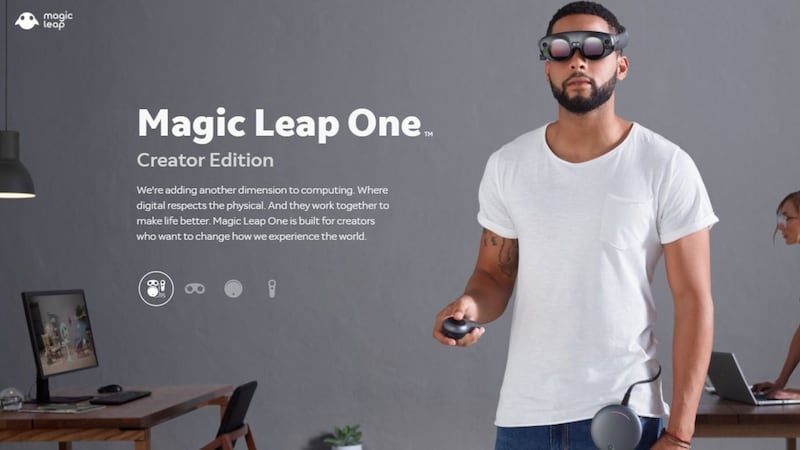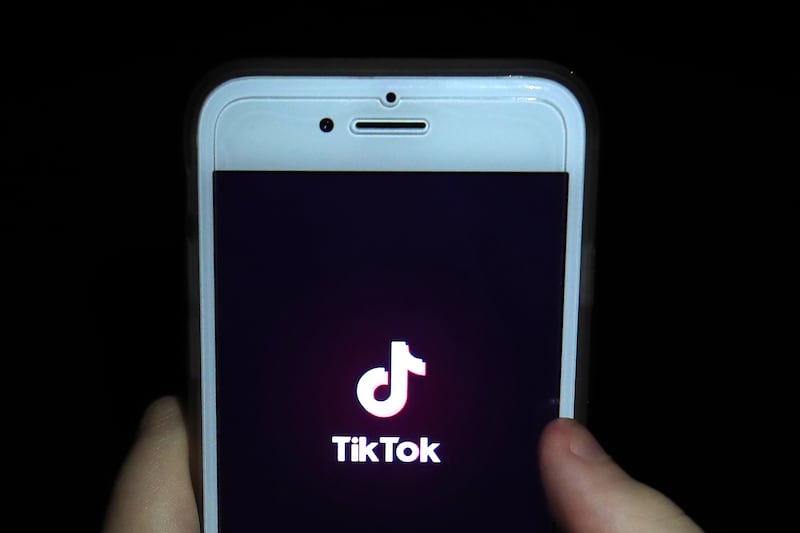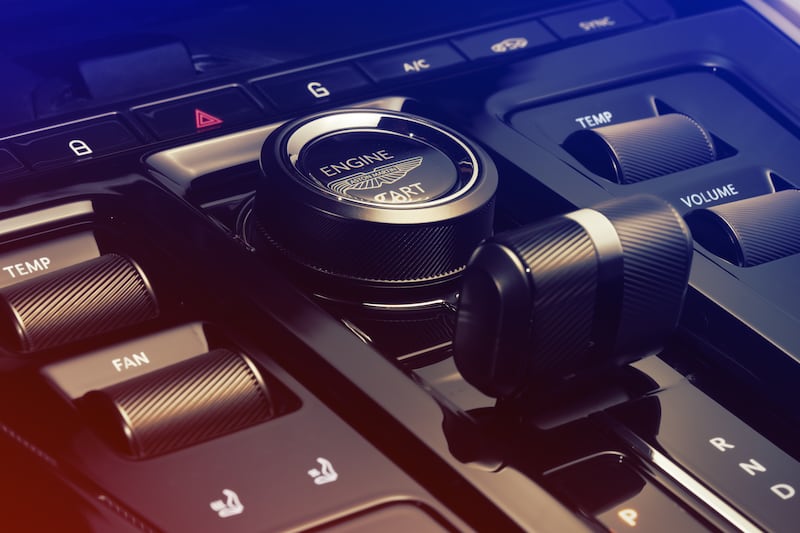Augmented reality start-up Magic Leap has officially unveiled its first piece of hardware, the Magic Leap One headset.
The Florida-based firm has been the subject of intrigue for years, as it has received large levels of funding from high profile investors without releasing any products, until now.
World, meet Magic Leap One. Magic Leap One, meet the world. More at: https://t.co/LbHY82tYUC pic.twitter.com/2iXgyPs21K
— Magic Leap (@magicleap) December 20, 2017
Set for release in 2018, Magic Leap One combines a headset/smartglasses set-up with a motion controller, powered by a small computer that attaches to a user’s side during use.
The sensor-loaded headset will be able to scan the surrounding environment and place holograms, notifications and gaming content into the real world.
This also extends to video content, with users able to open multiple virtual screens at once and watch content from YouTube and other sources from inside the headset.
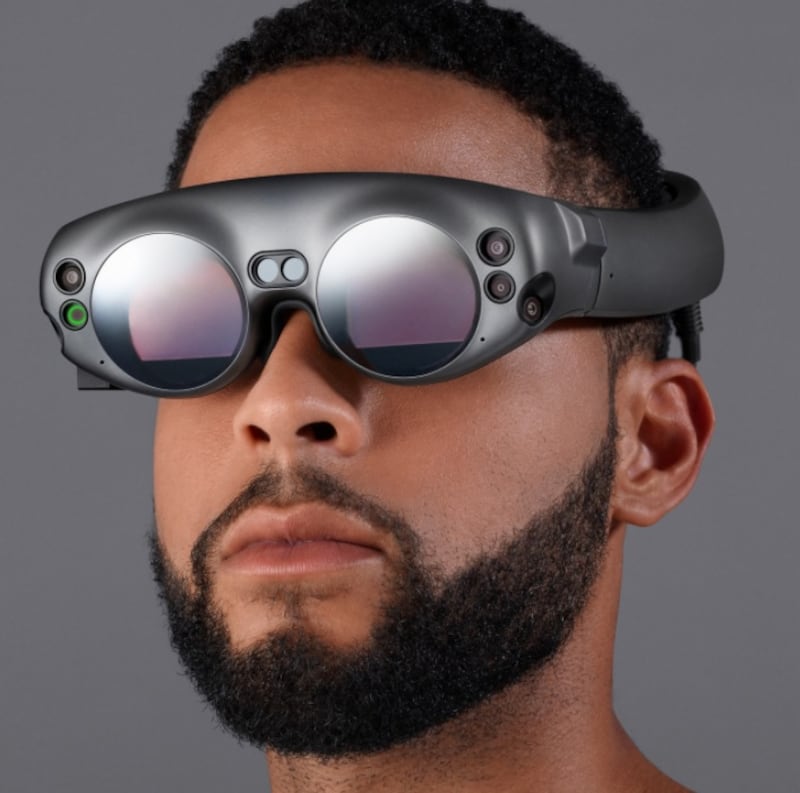
If this sounds slightly familiar you’d be right, the Microsoft HoloLens system offers a similar set-up, though minus the computer pack, which Microsoft instead houses in the headset itself.
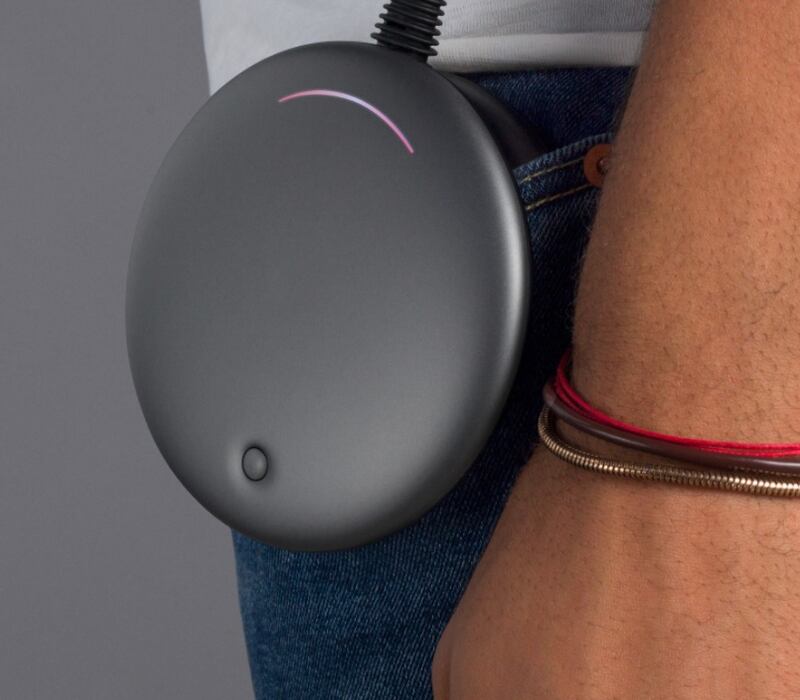
Magic Leap’s website is currently encouraging “designers, developers and creators” to sign up and express their interest in the One headset, suggesting it may well have a Google Glass-style soft launch to industry first.
More details on the launch and content likely to be available on the Magic Leap One are still to be revealed by the company, but the firm has said it will launch a Creator Portal for developers in the new year, enabling them to begin building content that will work on the platform.
Apple has recently began show a huge amount of interest in augmented reality, suggesting AR and not virtual reality (VR) will be the next big trend in the industry.
The initial reaction to Magic Leap’s reveal however has drawn a mixed response from the tech world.
Magic Leap has an external computer you attach to your hip. This is no HoloLens competition. You can attach a backpack PC to a VR headset right now. Self contained headsets are the future, and Magic Leap isn’t ready for the future yet pic.twitter.com/wiMbbFYP9s
— Tom Warren (@tomwarren) December 20, 2017
I wonder how awesome Magic Leap would’ve been if it had been released five- or even two years ago before we tried the self-contained HoloLens and before our phones could all do AR. Sorry, it sounds more late than revolutionary. pic.twitter.com/YZi1YU6Xu6
— Lance Ulanoff (@LanceUlanoff) December 20, 2017
Lesson for founders:
Magic Leap has been working on this crazy stuff for years -> still gets roasted on twitter. Because roasting stuff on Twitter is fun.
Don’t be afraid of the crowd. Keep building things you’re passionate about. Keep moving forward.
— Bringus Festivus (@HipCityReg) December 20, 2017
Magic Leap’s first product is not the mass-market, consumer version. There’s a roadmap (duh) and primary tech takes time. Apple will wait until its version is smaller before showing anything- Magic Leap is showing the steps. Now, great everyone will get to see what it can do.
— Benedict Evans (@BenedictEvans) December 20, 2017
However, full judgment will have to be reserved until the headset is tested for the first time, a timeline for which is yet to be disclosed by the US firm.
